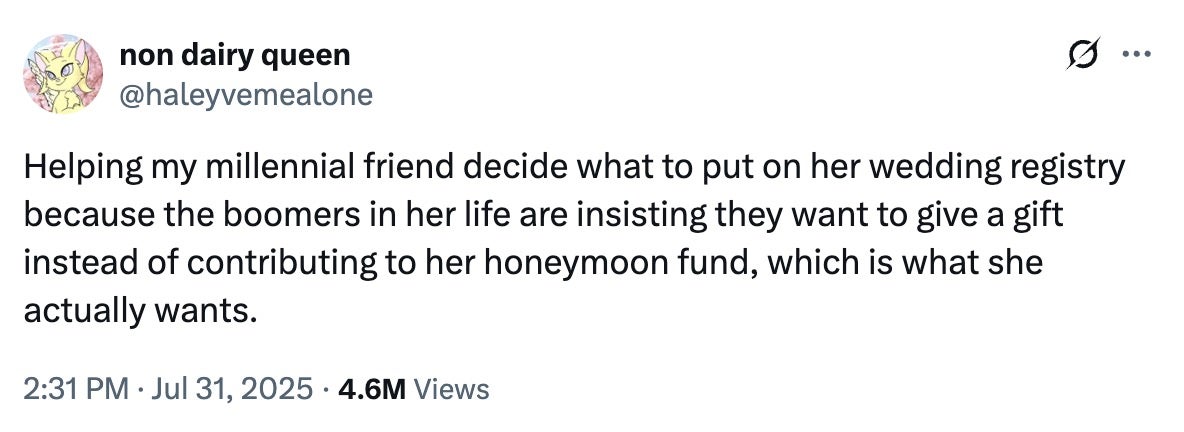The discussion surrounding wedding gift registries versus honeymoon funds has ignited a lively debate online, revealing a significant generational divide. This conversation gained traction at the end of July 2023 when Twitter user @haleyvemealone shared her dilemma: her millennial friend preferred a honeymoon fund over traditional gifts, but older relatives insisted on giving tangible items instead.
The trend of requesting honeymoon funds reflects changing attitudes towards gift-giving, particularly among younger generations. Many couples today are marrying later in life, often in their 30s or early 40s, and have already established their homes. As a result, they may already own most household items typically found on wedding registries. Additionally, many engaged couples live together before marriage, which further diminishes the need for traditional gifts.
For couples who are financially stable, a honeymoon fund can offer a more meaningful way to allocate guests’ contributions. Rather than receiving another set of dishes or kitchen gadgets, many prefer money that can fund experiences during their honeymoon. This shift also acknowledges the financial realities of modern life, where an increasing number of couples find it challenging to afford vacations without assistance from friends and family.
The notion of requesting cash or honeymoon funds has sparked controversy, particularly among older generations. Baby boomers, who typically view gift-giving as a personal and tangible act, often perceive cash requests as inappropriate. For many, the expectation of receiving something specific from registries is deeply rooted in tradition. Some individuals argue that asking for monetary contributions instead of physical gifts is impolite and detracts from the sentimental value of giving.
Yet, opinions vary widely. Some argue that it is perfectly acceptable for couples to ask for what they truly want. One Twitter user pointed out that while it may be seen as rude to ask for money directly, it is equally questionable to expect a list of expensive presents. This contradiction highlights the complexity of the issue, with various perspectives reflecting differing cultural norms and values surrounding gift-giving.
The debate also raises questions about the emotional significance of gifts. One participant mentioned that tangible gifts create a lasting reminder of the giver every time they are used, making the act of giving more personal. Others countered that after years of cohabitation, couples may already possess all necessary items and would prefer funds for experiences instead.
This discussion underscores the broader shifting dynamics in relationships and household needs. Many couples are navigating the challenges of building a life together while also balancing the expectations of family and friends. As society evolves, so too do the traditions and norms surrounding weddings and gift-giving.
While this conversation may seem trivial to some, it reflects deeper issues of values and expectations in modern relationships. As younger generations continue to redefine traditions, the dialogue around honeymoon funds versus gift registries will likely persist, illustrating the ongoing evolution of how love and commitment are celebrated in contemporary society.
